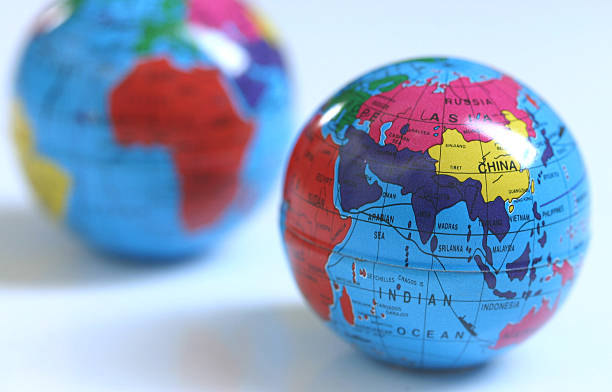Subscription required
Over six centuries ago, the renowned Chinese navigator Zheng He embarked on an extraordinary journey from Jiangsu Province, China, across the vast oceans, eventually reaching the East African coast, including present-day Tanzania. Along the Tanzanian shoreline, fragments of Chinese porcelain have been uncovered, hinting at an age-old maritime connection that transcends geography and time. This legacy symbolizes not just trade but also a profound cultural exchange and historical bond between China and Tanzania.
Fast forward to today, this historic relationship continues to evolve. Tanzania plays a pivotal role in China’s engagement with Africa, and Chinese President Xi Jinping has emphasized the importance of the partnership as a cornerstone of cooperation in the Global South. Together, the two nations aim to build a model relationship, fostering collaboration across various sectors and creating a shared vision for the future.
As 2024 marks the 60th anniversary of diplomatic ties between China and Tanzania, the partnership between Jiangsu Province and Tanzania serves as a shining example of what can be achieved through cultural exchange, mutual respect, and shared goals. From cultural tourism and education to trade and healthcare, their collaboration is flourishing, strengthening the bond forged along the historic Maritime Silk Road.
Cultural exchange has become a vital element in strengthening ties between Tanzania and Jiangsu. This year, a Tanzanian television drama titled Welcome to Maile Village resonated deeply with audiences in both countries. The show, inspired by Chinese medical aid teams in Zanzibar, symbolized the enduring friendship between China and Africa. One Tanzanian viewer remarked, “Maile” means “forever” in Swahili, perfectly capturing the everlasting bond between the two regions.
Jiangsu and Tanzania, both steeped in rich cultural and historical heritage, share a unique connection rooted in the Silk Road legacy. In Jiangsu, landmarks like the Longjiang Shipyard in Nanjing and the Tianfei Palace in Suzhou stand as living relics of this historic maritime network. Meanwhile, Tanzania boasts cultural treasures like Serengeti National Park and Mount Kilimanjaro, attracting global admiration.
This cultural exchange extends beyond history. Artists like Kabogo, a Tanzanian painter known for his vibrant wildlife-inspired Tingatinga art, have found an eager audience among Chinese visitors, including those from Jiangsu. Kabogo’s work symbolizes how art can bridge diverse cultures, fostering mutual appreciation and understanding.
Moreover, Jiangsu’s cultural heritage, from Suzhou’s classical gardens to the intricate Yunjin brocade, continues to captivate Tanzanian students and tourists. Fatia Saidi, a Tanzanian student in Jiangsu, describes her awe at the province’s blend of ancient traditions and modern innovations, expressing a desire to explore even more of its historical sites.
Water, a shared natural resource, further connects the two regions. Tanzania is home to some of Africa’s most significant water bodies, such as Lake Victoria, while Jiangsu’s landscape is shaped by its rivers, lakes, and seas. This shared affinity for water enriches cultural and tourism exchanges, creating opportunities for collaboration and mutual appreciation.
The partnership between Tanzania and Jiangsu extends beyond cultural ties, encompassing critical areas like healthcare, trade, and education. Healthcare, in particular, has been a cornerstone of their collaboration. Chinese medical teams have been providing advanced treatments in Zanzibar, training local doctors, and improving emergency response capabilities. Dr. Kamis Ali Kombo, a participant in a recent medical training program in Jiangsu, expressed gratitude for the skills he gained, which will enhance patient care in Tanzania.
Trade and investment are another vital aspect of this partnership. In 2023, China became Tanzania’s largest trading partner, with bilateral trade exceeding $8.7 billion. Jiangsu contributed significantly, accounting for $730 million of this total, marking a 12.6% increase from the previous year. Companies like Jiangsu’s Jielong Group are investing in Tanzania’s agricultural sector, introducing modern techniques and collaborating with local farmers to boost productivity.
Education also plays a crucial role in strengthening ties. Tanzanian students, such as Johnna, are learning aquaculture techniques in Jiangsu, with plans to apply these methods back home to support local communities. This exchange of knowledge fosters long-term development and self-sufficiency, embodying the Chinese proverb, “Teach a man to fish, and you feed him for a lifetime.”
As Tanzania and Jiangsu celebrate 60 years of diplomatic relations, their partnership continues to grow stronger, driven by a shared vision for modernization and sustainable development. During the 2024 Beijing Summit of the Forum on China-Africa Cooperation, Tanzanian President Samia Suluhu Hassan reaffirmed her nation’s commitment to deepening ties with China. She emphasized Tanzania’s active participation in China’s Belt and Road Initiative, which aims to deliver tangible benefits to people on both sides.
Looking ahead, cultural and tourism exchanges will remain a central focus. On November 20, the Jiangsu-Tanzania Cultural Tourism Promotion and Exchange Event will be held in Mwanza, Tanzania. This event aims to deepen mutual understanding, foster industrial collaboration, and enhance trust between the two regions.
In the realm of wildlife conservation, Jiangsu’s Nanjing Hongshan Forest Zoo is set to collaborate with Tanzania’s Serengeti National Park on initiatives like habitat preservation and species monitoring. This partnership underscores a shared commitment to ecological sustainability and the protection of natural resources.
The friendship between Tanzania and China, rooted in the historic Maritime Silk Road, continues to flourish. Jiangsu, with its blend of ancient traditions and modern innovation, extends an open invitation to Tanzanian friends. From exploring Suzhou’s serene gardens to experiencing Nanjing’s vibrant urban life, Jiangsu offers a wealth of opportunities for cultural exchange and shared growth.
As these two regions move forward together, their partnership serves as a beacon of what can be achieved through mutual respect, collaboration, and a shared vision for a better future. The enduring friendship between Tanzania and Jiangsu is a testament to the power of connection, proving that no distance is too great when hearts and minds come together.




